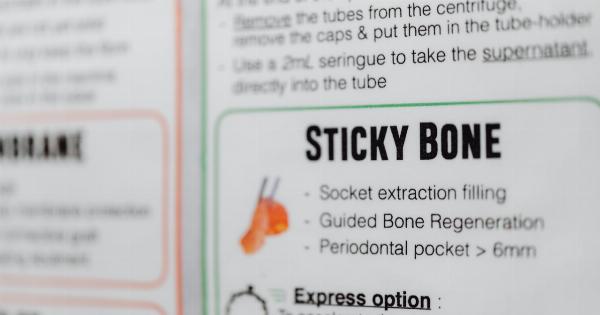Menopause is a natural phenomenon in a woman’s life that signifies the end of her reproductive years.
While it is a normal part of aging, menopause can bring along a host of discomforts, with hot flashes and night sweats being two of the most prevalent and bothersome symptoms. Here, we will explore tips and strategies for effectively managing these menopausal miseries.
Understanding Hot Flashes and Night Sweats
Hot flashes and night sweats are common symptoms experienced by women during menopause. A hot flash is a sudden sensation of intense heat that often begins in the chest and moves upwards to the neck and face.
It is accompanied by flushing of the skin, rapid heart rate, and sweating. Night sweats, on the other hand, are episodes of excessive sweating that occur during sleep and can disrupt a woman’s rest.
While the exact cause of hot flashes and night sweats is not fully understood, experts believe that hormonal fluctuations during menopause play a significant role.
Estrogen, the primary hormone that declines during menopause, is thought to affect the hypothalamus, the part of the brain that regulates body temperature. This disruption in temperature regulation can lead to the sudden surges of heat and subsequent sweating that characterize hot flashes and night sweats.
1. Dress in Layers
One effective way to manage hot flashes and night sweats is by wearing lightweight, breathable clothing and dressing in layers. By layering your clothing, you can easily remove or add layers as needed to regulate your body temperature.
Opt for natural fibers such as cotton or linen, as they allow your skin to breathe and help wick away moisture.
2. Manage Stress
Stress can trigger and worsen hot flashes and night sweats. Learning effective stress management techniques can significantly reduce the frequency and intensity of these episodes.
Consider incorporating relaxation techniques such as deep breathing exercises, meditation, yoga, or tai chi into your daily routine. Engaging in regular physical activity can also help alleviate stress and improve your overall well-being.
3. Stay Hydrated
Keeping yourself well-hydrated is crucial during menopause, as it can help regulate your body temperature and reduce the intensity of hot flashes.
Aim to drink at least eight glasses of water per day and limit your caffeine and alcohol intake, as they can exacerbate hot flashes and contribute to dehydration.
4. Maintain a Healthy Weight
Being overweight or obese can increase the frequency and severity of hot flashes and night sweats. Studies have shown that losing excess weight can significantly reduce the intensity of these symptoms.
Focus on adopting a balanced diet rich in fruits, vegetables, whole grains, lean proteins, and healthy fats. Incorporate regular exercise into your routine to help shed those extra pounds and improve overall health.
5. Identify Trigger Foods
Certain foods and beverages have been known to trigger hot flashes and night sweats in some women. While triggers can vary from person to person, the most common culprits include spicy foods, caffeine, alcohol, and hot beverages.
Pay attention to your diet and keep a food diary to identify any specific triggers that may be exacerbating your symptoms. Once you pinpoint what sets off your hot flashes and night sweats, you can make informed decisions about avoiding or minimizing those triggers.
6. Cool Your Sleeping Environment
Night sweats can disrupt your sleep and leave you feeling exhausted. To improve the quality of your sleep, create a cool and comfortable sleeping environment. Use breathable bedding materials such as cotton sheets and lightweight blankets.
Consider using a fan or air conditioning to keep the room temperature cool. You can also try using moisture-wicking pajamas or sheets to help absorb excess sweat during the night.
7. Hormone Replacement Therapy (HRT)
Hormone replacement therapy is a medical treatment that can effectively alleviate menopausal symptoms, including hot flashes and night sweats.
HRT involves taking medications that contain estrogen and progesterone to replace the hormones that your body no longer produces in sufficient quantities. However, HRT carries potential risks and side effects, so it is important to discuss the pros and cons with your healthcare provider before considering this option.
8. Try Alternative Therapies
Several alternative therapies have shown promising results in managing hot flashes and night sweats. These include acupuncture, herbal supplements such as black cohosh and red clover, and mind-body practices like hypnosis.
While some women find relief from these therapies, it’s essential to consult with your healthcare provider before trying any alternative treatments to ensure their safety and effectiveness for your specific situation.
9. Stay Active and Exercise Regularly
Engaging in regular physical activity can help reduce the frequency and severity of hot flashes and night sweats. Exercise releases endorphins, which are natural mood boosters and can help manage stress, a common trigger for these symptoms.
Aim for at least 150 minutes of moderate-intensity aerobic activity per week, such as brisk walking, swimming, or cycling. Additionally, incorporating strength training exercises into your routine can help maintain bone density and muscle mass, which tend to decrease during menopause.
10. Talk to Your Doctor
If your hot flashes and night sweats significantly affect your quality of life or the strategies mentioned above do not provide relief, it is important to consult with your healthcare provider.
They can offer additional guidance, recommend suitable medications, or explore other treatment options tailored to your specific needs.























